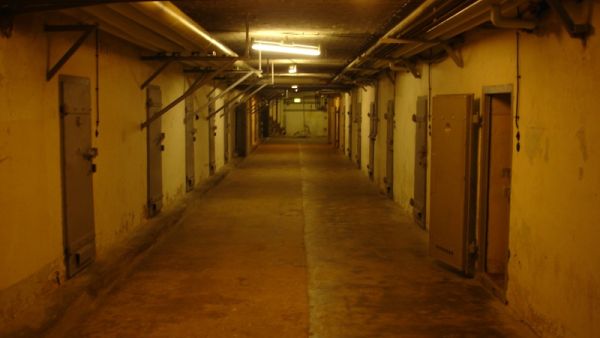Haitham was living with his uncle in Haima district to continue his studies when he had a fight with another child and unintentionally killed him. Haitham was 14 years old when he was taken to the Juvenile Department in the Central Prison. The tribal judgment set the blood money that Haitham should pay the dead child’s family at YR 9 million. As his family can’t afford to pay that amount of money, Haitham has remained in prison for more than three years longer than his actual sentence. Haitham is not the only one facing an unknown future in the Central Prison after completing his sentence.
Around 350 people are kept in the Central Prison longer than their sentence. Some of them stay for more than eight years longer than their actual sentence. These people are called ‘Moa’sreen’, which means people who are facing difficulties in paying back loans or blood money.
In the Central Prison in Sana’a the total number of prisoner is 2500. Fourteen percent of them are imprisoned for longer than their sentence. This number includes juveniles who were accused of murder or assaults that need to be paid for. In the Juveniles Department there are 65 children, all male. Twenty-six of them are imprisoned for ‘private rights’, the legal term for cases that are related to money and property.
When it comes to private rights cases, the penalty has two aspects. The first is the public right which is the prison period. The second is the private right which means paying back the money to the relevant people. When the prisoner has fulfilled their public right sentence, they still can’t be released until paying back the amount stated in the private right case.
According to Colonel Motahar Ali Naji, general manager of the Central Prison in Sana’a, some prisoners have to pay a large amount of money to be released. Ali Al-Homisi, the owner of Al-Qadisa car show, has been asked to pay YR240-million. Another prisoner has been asked to pay USD300,000.
Every year some of these prisoners are released through donations from businessmen and the president. The priority as to which prisoners have their fines paid go to those who have spent the longest period in prison, according to Naji. However, for those who have large amounts of money owing, it is still a problem to get donations and help.
Naji told the Yemen Times that its moa’sreen is a continual problem. Every day they release two or three and receive the same number. “This problem never ends as the people of this country likes to commit fraud,” said Naji.
Naji told the Yemen Times that the judiciary system in Yemen is “rubbish” as the current system encourages people to think that they will have donations to pay the private rights and they can get away with their crimes. “It should be who kills someone has to be killed.”
“There was a case of man who murdered someone and when he was in front of the prosecution he said he would kill again and Ali Abdulleh Saleh will pay the blood money” explained Naji. “We are facing a big problem with people who think they can murder and the state has to pay for them.”
Abd Al-Rahman Barman, the head of Sjeen Organization for Defending Prisoners Rights, explained that private rights cases are civil cases and can’t be transferred to the Central Prison. The Central Prison is only to receive criminal cases. Only in one situation can a civil case be accepted to the Central Prison, which is when the accused is proven to have money and doesn’t want to pay it back.
Along with the 350 prisoners there are seven women who are being kept longer than their sentence. Some of them are sentenced for murdering their husbands and have been kept in prison for the blood money.
“The president paid for two of those women. One of them had to pay YR 5 million, and the other had to pay YR 1,700,000. The state paid part of the money and obliged the women to find other sources to pay the rest of the money,” said Naji.
Ali Al-Dailami, a head of the Yemeni Organization for Defending Rights and Freedoms, believes the release priorities are wrong. “Instead of releasing those who have spent the longest period, they should release the juveniles,” said Al-Dailami. “Keeping the juveniles in the Central Prison is a huge problem itself, so keeping them even longer forces them be raised in a criminal environment.”
Al-Dailami asks for amendments to the law to address this situation, such that consideration can be given to prisoners who are under tough circumstances.
By Shatha Al-Harazi

The Central Prison in Sana’a holds 2,500 prisoners.







